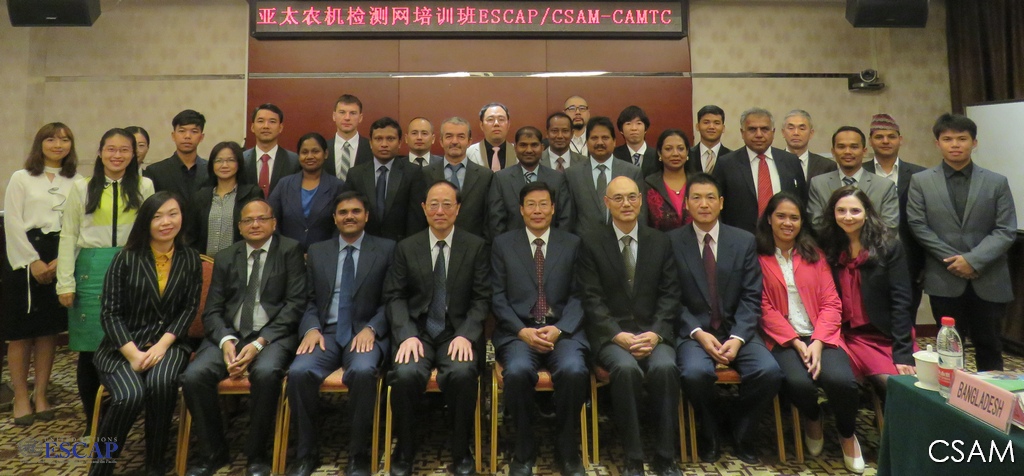4th Regional Training of Trainers of ANTAM Focuses on Strengthening Testing Capacity of National testing Centers in the Asia Pacific Region, China, 22-27 October 2018

Engineers from 13 countries in the Asia-Pacific region participated in the 4th Training of Trainers of the Asian and Pacific Network for Testing of Agricultural Machinery (ANTAM).
The event was organized by the Centre for Sustainable Agricultural Mechanization of the United Nations Economic and Social Commission for Asia and the Pacific (ESCAP-CSAM) in collaboration with the China Agricultural Machinery Testing Center (CAMTC) of the Ministry of Agriculture and Rural Affairs of China, and took place in Beijing and Wuhan, China, from 22 to 27 October 2018.
In her welcome remarks, CSAM’s Head highlighted ANTAM’s contribution to the achievement of the Sustainable Development Goals, in particular Goal 2 (Zero Hunger), Goal 13 (Climate Action), and Goal 17 (Partnerships for the Goals). The training programme was designed to support ANTAM member countries’ efforts in establishing new testing stations for agricultural machinery, as well as modernizing existing facilities.
The training curriculum was designed to provide an overview of international certification systems including ANTAM, the International Organization for Standardization (ISO), and the Organisation for Economic Co-operation and Development (OECD) ,as well as sharing China’s rich technical and institutional experience in certification. Participants from India, Japan, Republic of Korea, and the Russian Federation were also invited to present certification schemes in their respective countries. The programme included visits to testing stations and testing laboratories for power tillers, a demonstration of field performance of paddy transplanters as per ANTAM codes, and lectures specific to testing of powered knapsack misters-cum-dusters.
Furthermore, trainees participated in the 6th Regional Forum on Sustainable Agricultural Mechanization organized by ESCAP-CSAM in Wuhan, which was attended by representatives from member countries, academia, the private sector and international organizations. The forum was held on the side of the China International Agricultural Machinery Exhibition. The participation to the events in Wuhan provided the trainees with the unique occasion of interacting with some of the region’s major players in the agricultural machinery sector and share common challenges, opportunities and new trends in sustainable agricultural mechanization.
